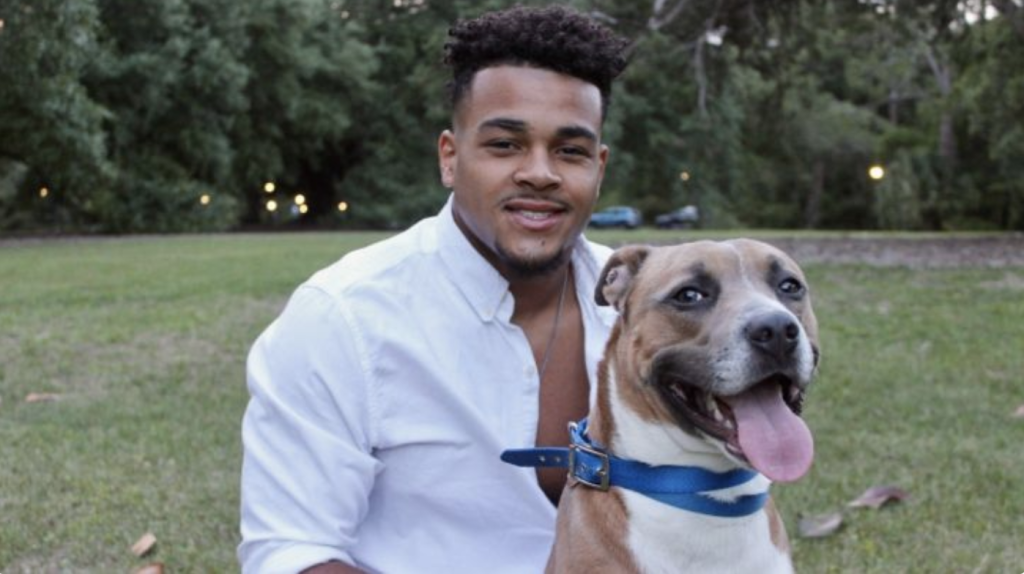
Source: GoFundMe / Francys Johnson
More than two years after his initial arrest, William Marcus “Marc” Wilson’s fate hangs in the balance. Loss of life is always tragic. But another tragedy was narrowly avoided in Wilson’s acquittal of all the charges initially levied against him.
Charged in the killing of a white teen who was a passenger in a truck that reportedly targeted and harassed Wilson on a dark rural road, the young man maintained his need to defend himself and his girlfriend at the time. While Wilson was convicted of involuntary manslaughter after a last-minute charge submitted by the prosecution, his legal team remains committed to getting their client the most just outcome possible.
Fighting for justice in the shadow of Jim Crow
Francys Johnson, a former State President of the Georgia NAACP and lead attorney for Wilson’s defense team, spoke to NewsOne about the trial and what it means to be a Black attorney committed to justice in the deep south. Johnson and his colleagues fought an uphill battle at every step of the process, including demands for transparency.
“Systems like the one operating in this area operate and can do so because they don’t have exposure, transparency and the eyes of the nation upon them,” Johnson told NewsOne. “But for the attorneys, in this case, laying their bodies against the whole system, on the gears of this system and slowing this case down and bringing it the attention it needed, they would have convicted Mark Wilson of a felony murder within a year.”
At one point, Johnson was even detained and slapped with a charge of contempt of court for challenging what appeared to be improper communication between the first judge and the prosecution. A court clerk mistakenly handed evidence about the trial that the prosecution never disclosed to the defense.
Like any good lawyer, he vigorously defended his client’s right to a fair trial. The first judge in the case was ultimately removed for “appearance of bias or prejudice.” This came after 100 lawyers supported Johnson during his appeal of the contempt charge.
“Members of the bar across the state rose up and said, ‘This is not right. This is not the practice of law. We should not be threatened with jail time for doing your job,’” Johnson recounted. “I was grateful for a former state president of the bar Lester Tate who decided to represent me and appeal to the court of appeals, which unanimously overturned Judge Muldrew’s actions and said that the only person that was wrong in that courtroom that day was Judge Muldrew.”
Black people are often treated as guilty until proven innocent in the eyes of the law.
A significant part of the so-called American legal system is that defendants are supposed to be innocent until proven guilty. But in many ways, Wilson was treated as a guilty man convicted of a crime long before he even went to trial. Johnson said determinations of what is reasonable to fear was a high bar for “untrained Black civilians” and low when it came to “highly trained police officers.”
“Philando Castile retrieving his license upon command of a law enforcement officer was enough to justify reasonable fear,” Johnson said. “We can go on down the line of folks who were justified because they mistook a wallet for a gun.”
Johnson also stressed that Wilson was vindicated of all charges initially filed against him and only found guilty of the last-minute addition of involuntary manslaughter. The prosecution failed to meet the burden on several severe charges despite evidence showing that Wilson feared for his life and presumably acted in self-defense.
“We thank God we had the police interview of Mark Wilson before he had a lawyer or even told his parents, and his story has remained consistent,” Johnson said. “And I think the jury believed him. They heard his real fear. They heard his love and care and concern for Emma Rigdon. They heard her fear. And when Emma Rigdon got on that stand, and no one has really reported that she said, ‘Mark Wilson saved my life that night, but for his actions, we both could have been dead.’”
A major sticking point remains the exclusion of testimony from community members to some of the actions of the car’s occupants that targeted Wilson and his girlfriend. Johnson explained there are exceptions in what kind of testimony can be presented to establish motive, mistake of accident, and scheme, among other things that help demonstrate how and why a set of events happen.
Johnson and his team hoped to explain that Marc Wilson’s actions were rational and that the occupants of the other vehicle had a pattern and practice of similar harassing activity. But the judge excluded evidence of prior bad acts on behalf of some of the occupants in the other car.
“Our hands were tied behind our backs,” Johnson said. “This system could never validate him fully for his actions that day, that the system has been dyed itself to do that.”
Marc Wilson’s case is more common for Black people than many realize
Unfortunately, Johnson said that Wilson’s case is more common in the criminal injustice system than people may realize. The right to claim to stand your ground and other justifications, whether as immunity from prosecution or as a defense, is disproportionately denied Black people.
“Simply put, stand your ground is not available to Black people across this country,” Johnson said. “This case is very much the norm when it comes to Black people defending their lives with deadly force.”
He also shared that the lack of scrutiny of the criminal system in places like Statesboro added to the injustice. According to Johnson, there has never been a Black district attorney, assistant district attorney or judge in the surrounding judicial circuit.
“The total administration of justice is white,” he explained. “It’s not difficult for me to see why they couldn’t believe the real fear that was Marc Wilson’s reality that night.”
“This case has so many different little nuggets that I take away as a professional,” Johnson continued. “The value of organizing. The value of being in community with other professionals. And just trusting that although we didn’t know what was going to happen next, what we did know is that we would be faithful to our creed as lawyers, we would be faithful to our responsibility as organizers, we would be faithful to our duty as a member of this community to move with integrity and trust that those things would be enough to see us through.”
SEE ALSO:
Marc Wilson’s Judge Removed For ‘Appearance of Bias Or Prejudice’ In Stand Your Ground Case
Marc Wilson’s Lead Attorney Speaks About Fighting Injustice In South Georgia was originally published on newsone.com




